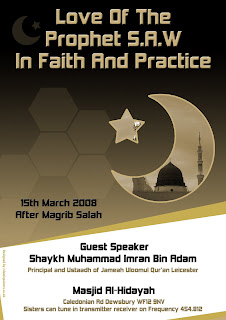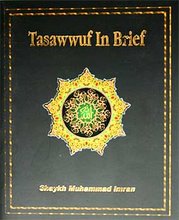Take a deep look into yourself...
Allah subhanahu wa ta'ala, through his infinite mercy, has blessed us with Iman, of which the value is unimaginable. Furthermore, a person need not look much further than one's own body. The perfect eyes, ears, nose, tongue, hands and we could go on naming every part of the body, which Allah subhanahu wa ta'ala has created so impeccably for our benefit. Allah, You blessed us with all of this, how well have we thanked You? How often have we used these very blessings to disobey you?
Take a look around you...
Thereafter, we look around us and we realise further ingratitude on our part. In comparison to so many throughout the world, the luxury that Allah subhanahu wa ta'ala has allowed us is unmatched maybe. Facilities and amenities that we deem a norm and a simple aspect of our lives, cannot even be dreamt of by many around the world. Electricity, taps of pure water, efficient drainage systems, free schooling, to name a few.
How many are there throughout the world who travel long distances everyday for just a bucket of water? How many are there, who must go in search of wood to use for fires to be used for cooking and lighting? How many are there for whom rain means floods due to poor, or no, drainage system? How many are there for whom a little education is a distant dream? The answer is: at least hundreds of thousands, very easily millions.
Our crime...
It is a great injustice on our part that these very blessings Allah subhanahu wa ta'ala has bestowed upon us, we use to disobey Him.
Reward of appreciation...
The reward of appreciation is increase. As Allah subhanahu wa ta'ala informs us in the Qur'an:
"If you are grateful, I will add more (favours) unto you; but if you show ingratitude, truly My punishment is terrible indeed." [14:7]
The increase for gratitude of our bodies would be continued ability to use them in the obedience of Allah subhanahu wa ta'ala.
The increase for gratitude of our Iman (faith) would be further strength and firmness, as well as the ultimate blessing of death upon Iman.
Advice of the Greatest Imam...
Sayyiduna al-Imam al-A'zham Abu Hanifah (may Allah be pleased with him) said that whoever recites the following supplication of the Qur'an after every salah will die upon Iman, and it is a supplication of thanks and gratitude:
"Our Lord! Let not our hearts deviate now after You have guided us, but grant us mercy from Your own Presence; for You are the Grantor of bounties without measure." [3:8]
In good times, and bad...
However, the situation we find ourselves in is that generally, there is much more ungratefulness than gratitude. We have not appreciated our Iman, hence sin is rife. We do not even appreciate the health that Allah subhanahu wa ta'ala has bestowed us with, whereas we should appreciate any illness that He gives too! However, we constantly complain.
True gratitude requires thanks for health as well as illness; wealth as well as poverty. True appreciation is a sign of strong trust upon Allah subhanahu wa ta'ala, which is a sign of true faith.
Finally...
In conclusion, it is an obligation upon each of us to thank Allah subhanahu wa ta'ala verbally, but more so, through our actions. Obedience and submission to His laws is the best show of appreciation.
...And remember:
"When Allah takes something away from your grasp, He is not punishing you, but merely emptying your hands for you to receive something better."
So thank Him.


















